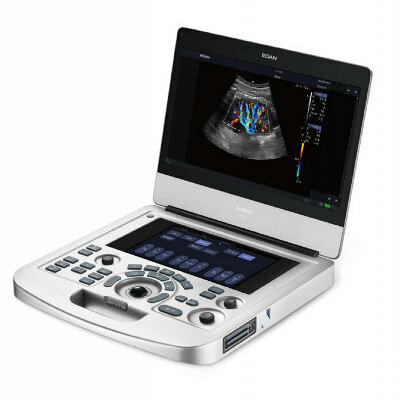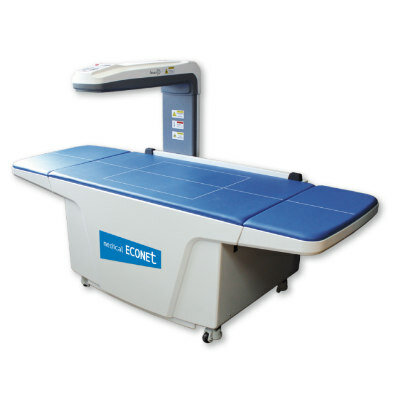AI System Quickly and Automatically Evaluates Chest X-Rays for TB
|
By MedImaging International staff writers Posted on 07 Sep 2022 |

Tuberculosis (TB) is an infectious disease of the lungs that kills more than a million people worldwide every year. The COVID-19 pandemic has exacerbated the problem, with recent reports indicating that 21% fewer people received care for TB in 2020 than in 2019. Almost 90% of the active TB infections occur in about 30 countries, many with scarce resources needed to address this public health problem. Cost-effective TB screening using chest X-rays and artificial intelligence (AI) has the potential to improve access to healthcare, particularly in difficult-to-reach populations. Now, an AI system that detects TB in chest X-rays at a level comparable to radiologists may be able to aid screening in areas with limited radiologist resources.
Scientists at Google Health AI (Mountain View, CA, USA) have developed and assessed an AI system that can quickly and automatically evaluate chest X-rays for TB. The system uses deep learning, a type of AI that can be applied to teach the computer to recognize and predict medical conditions. The researchers developed the system using data from nine countries. They then tested it on data from five countries, covering multiple high-TB-burden countries, various clinical settings and a wide range of races and ethnicities. Over 165,000 images from more than 22,000 patients were used for model development and testing.
Analysis with 14 international radiologists showed that the deep-learning method was comparable to radiologists for the determination of active TB on chest X-rays. Trends were similar across different patient subgroups, including a test set from gold miners in South Africa, a group with a high prevalence of TB, compared to the general public. If additional research supports the results, the deep-learning system could be used to automatically screen chest X-ray results for TB. People who test positive would then receive a sputum test or nucleic acid amplification testing (NAAT). These tests are relatively expensive, but if AI could filter the patients who need the test, the benefits would be extensive. Simulations using the deep-learning system to identify likely TB positive chest X-rays for NAAT confirmation reduced the cost by 40% to 80% per positive TB patient detected.
“We wanted to see if this system predicts TB on par with radiologists, and that’s what the study is showing,” said study co-author Rory Pilgrim, B.Eng., a product manager at Google Health AI. “AI performed really well with a variety of patients.”
“What’s especially promising in this study is that we looked at a range of different datasets that reflected the breadth of TB presentation, different equipment and different clinical workflows,” said first author Sahar Kazemzadeh, B.S., software engineer at Google Health. “We found that this deep-learning system performs really well with all of them with a single operating point that was pre-selected based on a development dataset, something that other medical imaging AI systems have found challenging.”
Related Links:
Google Health AI
Latest Radiography News
- Novel Breast Imaging System Proves As Effective As Mammography
- AI Assistance Improves Breast-Cancer Screening by Reducing False Positives
- AI Could Boost Clinical Adoption of Chest DDR
- 3D Mammography Almost Halves Breast Cancer Incidence between Two Screening Tests
- AI Model Predicts 5-Year Breast Cancer Risk from Mammograms
- Deep Learning Framework Detects Fractures in X-Ray Images With 99% Accuracy
- Direct AI-Based Medical X-Ray Imaging System a Paradigm-Shift from Conventional DR and CT
- Chest X-Ray AI Solution Automatically Identifies, Categorizes and Highlights Suspicious Areas
- AI Diagnoses Wrist Fractures As Well As Radiologists
- Annual Mammography Beginning At 40 Cuts Breast Cancer Mortality By 42%
- 3D Human GPS Powered By Light Paves Way for Radiation-Free Minimally-Invasive Surgery
- Novel AI Technology to Revolutionize Cancer Detection in Dense Breasts
- AI Solution Provides Radiologists with 'Second Pair' Of Eyes to Detect Breast Cancers
- AI Helps General Radiologists Achieve Specialist-Level Performance in Interpreting Mammograms
- Novel Imaging Technique Could Transform Breast Cancer Detection
- Computer Program Combines AI and Heat-Imaging Technology for Early Breast Cancer Detection
Channels
MRI
view channel
PET/MRI Improves Diagnostic Accuracy for Prostate Cancer Patients
The Prostate Imaging Reporting and Data System (PI-RADS) is a five-point scale to assess potential prostate cancer in MR images. PI-RADS category 3 which offers an unclear suggestion of clinically significant... Read more
Next Generation MR-Guided Focused Ultrasound Ushers In Future of Incisionless Neurosurgery
Essential tremor, often called familial, idiopathic, or benign tremor, leads to uncontrollable shaking that significantly affects a person’s life. When traditional medications do not alleviate symptoms,... Read more
Two-Part MRI Scan Detects Prostate Cancer More Quickly without Compromising Diagnostic Quality
Prostate cancer ranks as the most prevalent cancer among men. Over the last decade, the introduction of MRI scans has significantly transformed the diagnosis process, marking the most substantial advancement... Read moreUltrasound
view channel
Deep Learning Advances Super-Resolution Ultrasound Imaging
Ultrasound localization microscopy (ULM) is an advanced imaging technique that offers high-resolution visualization of microvascular structures. It employs microbubbles, FDA-approved contrast agents, injected... Read more
Novel Ultrasound-Launched Targeted Nanoparticle Eliminates Biofilm and Bacterial Infection
Biofilms, formed by bacteria aggregating into dense communities for protection against harsh environmental conditions, are a significant contributor to various infectious diseases. Biofilms frequently... Read moreNuclear Medicine
view channel
New SPECT/CT Technique Could Change Imaging Practices and Increase Patient Access
The development of lead-212 (212Pb)-PSMA–based targeted alpha therapy (TAT) is garnering significant interest in treating patients with metastatic castration-resistant prostate cancer. The imaging of 212Pb,... Read moreNew Radiotheranostic System Detects and Treats Ovarian Cancer Noninvasively
Ovarian cancer is the most lethal gynecological cancer, with less than a 30% five-year survival rate for those diagnosed in late stages. Despite surgery and platinum-based chemotherapy being the standard... Read more
AI System Automatically and Reliably Detects Cardiac Amyloidosis Using Scintigraphy Imaging
Cardiac amyloidosis, a condition characterized by the buildup of abnormal protein deposits (amyloids) in the heart muscle, severely affects heart function and can lead to heart failure or death without... Read moreGeneral/Advanced Imaging
view channel
New AI Method Captures Uncertainty in Medical Images
In the field of biomedicine, segmentation is the process of annotating pixels from an important structure in medical images, such as organs or cells. Artificial Intelligence (AI) models are utilized to... Read more.jpg)
CT Coronary Angiography Reduces Need for Invasive Tests to Diagnose Coronary Artery Disease
Coronary artery disease (CAD), one of the leading causes of death worldwide, involves the narrowing of coronary arteries due to atherosclerosis, resulting in insufficient blood flow to the heart muscle.... Read more
Novel Blood Test Could Reduce Need for PET Imaging of Patients with Alzheimer’s
Alzheimer's disease (AD), a condition marked by cognitive decline and the presence of beta-amyloid (Aβ) plaques and neurofibrillary tangles in the brain, poses diagnostic challenges. Amyloid positron emission... Read more.jpg)
CT-Based Deep Learning Algorithm Accurately Differentiates Benign From Malignant Vertebral Fractures
The rise in the aging population is expected to result in a corresponding increase in the prevalence of vertebral fractures which can cause back pain or neurologic compromise, leading to impaired function... Read moreImaging IT
view channel
New Google Cloud Medical Imaging Suite Makes Imaging Healthcare Data More Accessible
Medical imaging is a critical tool used to diagnose patients, and there are billions of medical images scanned globally each year. Imaging data accounts for about 90% of all healthcare data1 and, until... Read more
Global AI in Medical Diagnostics Market to Be Driven by Demand for Image Recognition in Radiology
The global artificial intelligence (AI) in medical diagnostics market is expanding with early disease detection being one of its key applications and image recognition becoming a compelling consumer proposition... Read moreIndustry News
view channel
Bayer and Google Partner on New AI Product for Radiologists
Medical imaging data comprises around 90% of all healthcare data, and it is a highly complex and rich clinical data modality and serves as a vital tool for diagnosing patients. Each year, billions of medical... Read more



















